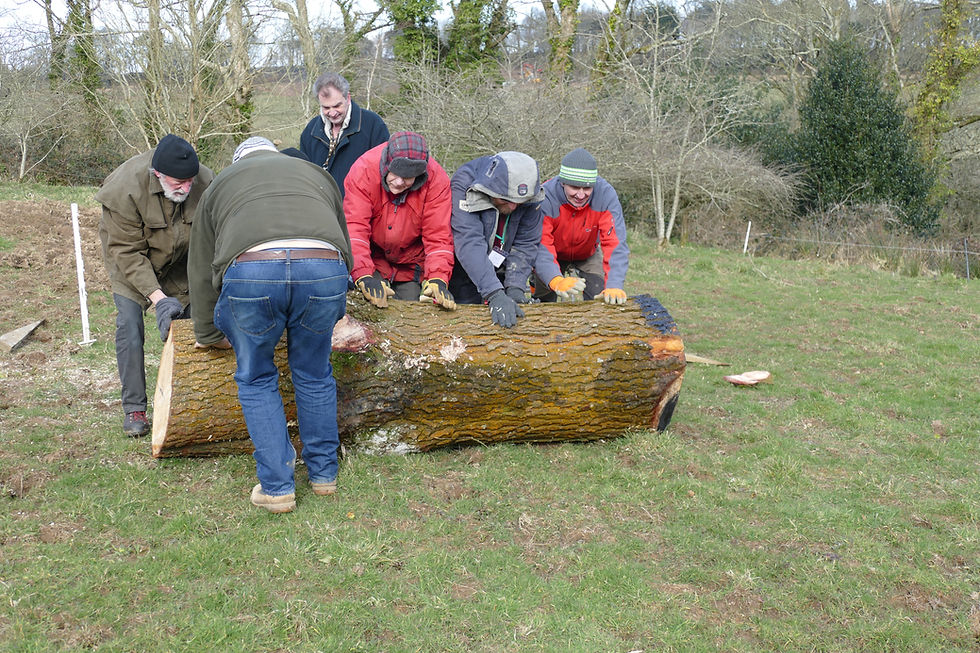When a Spirit of True Enquiry Infuses our Beekeeping
- Jan 24, 2016
- 4 min read
Updated: Feb 9, 2020

There is, it seems to us, at best, only a limited value in the knowledge derived from experience. The knowledge imposes a pattern, and falsifies, for the pattern is new in every moment…
East Coker, TS Eliot
To slightly paraphrase John Whitaker, a master beekeeper writing in the January 2016 edition of BBKA News, ‘Orthodoxy is the practice of conforming to the traditional or generally accepted rules and beliefs. A loss of belief in any particular orthodoxy is disturbing. It may originate from scepticism or a wilful desire to question or, perhaps, doubt may arise without volition. It can take us from the security of orthodoxy into an uncertainty where there may not be a clear alternative.’
It must uncomfortable indeed to reach the zenith of one’s beekeeping, to become a master beekeeper, and then to discover doubt. Think of all the study that has been done, the exams that have been passed, the certificates that have been earned, the approbation and approval that has been gained from peers and superiors. Imagine that one enters the sunlit uplands of one’s beekeeping career, where one expects serenity and light, and one finds oneself confronted with…. doubt. But, here is a man who has not only been so confronted but has the courage publicly to admit such doubt. Well done him!
In truth, of course, if we do not have doubt, we are not thinking hard enough about what we do. Doubt is the driving force behind all discoveries. It is the absence of doubt that closes the door to new understandings. If we are convinced that what we do is entirely correct, where is the need for new thoughts or new knowledge? But, who among us has not paused as we have done something for the bees and wondered; is this really what the bee wants?
Thinking beekeepers do what they do with the intention of assisting the bee, but they also make room for doubt about the appropriateness of their actions. In this context, bee-centred beekeepers judge ‘appropriate’ from the viewpoint of the bee. This said, whether a beekeeper is natural or conventional, bee-centred or honey-centred, most 'do': they see beekeeping as an active pursuit. In recent years, however, some have started to explore the art of ‘not-doing’. Masanobu Fukuoka writes eloquently about the discovery of not-doing in his book, ‘One Straw Revolution’. To travel this path requires a considerable amount of 'unlearning', in the terminology of Charles Martin Simon. As we travel down the road of un-learning, we find that, from the viewpoint of the bee, much of what we thought we had to do is not just unnecessary, it is actually harmful.
But surely the needs of the bee were discovered years ago and are enshrined in the many beekeeping books? Alas, this is not so. Only in recent decades have biologists started truly to understand the bee as a creature, and that knowledge is very new; it has yet fully to percolate orthodox thinking. What is more, some of the leading bee scientists have started to wonder if our current knowledge is no more than a mere glimpse into the complex and subtle behaviours of the organism that is the bee. Even the very hives in which we keep our bees may play a far more important role than we previously thought and may inadvertently cause stress to the colonies housed in them.
Herein lies the pivotal role of bee-centred natural beekeeping. Those who go down the natural path tend to be those who are comfortable asking questions; maybe are even driven to ask questions. Why is a beehive this shape and size? If a bee were to design a hive, what would it look like? If a queen excluder is needed - why don’t hollow trees have them? And so on.
When natural beekeepers come up with an answer to some of these questions, however, they must, at all costs, avoid thinking that this is the answer. It isn’t! Any answer is just a step to a different understanding; one step on a long road that may, at times, lead right back to the place where the journey started. Moreover, having made the journey, one might finally recognise that place for what it truly is; seeing it for the very first time. As TS Eliot points out, it is not the knowledge, it is the journey, that matters. The knowledge gathered on that journey shifts as the perspective changes; a mountain range seen from a train looks different as the train travels. The bee is similar. It appears different to us as we ponder its bee-ness on our shared journeys year on year. Sometimes we have to jettison entire concepts - our own orthodoxies - as we realise they have no currency in bee-land.
If we hold ourselves always in a spirit of true enquiry and remain open to the bees’ guidance, if we are humble enough to listen, they will reveal their needs. Then our uncertainties will become a creative force that enables us to learn a new language: the joyous language of Bee. As with mastering any language, it is an enthralling journey, full of unexpected twists and turns. Along the way, we will glean many insights, not just into the Bee but also into ourselves. We take the first step when we have the courage not just to recognise doubt but to listen to our doubt and, because of it, act differently. As master beekeeper John Whitaker concludes: ‘beekeeping is more than looking in hives and putting honey in jars. It is also about trying to understand’.





Comments